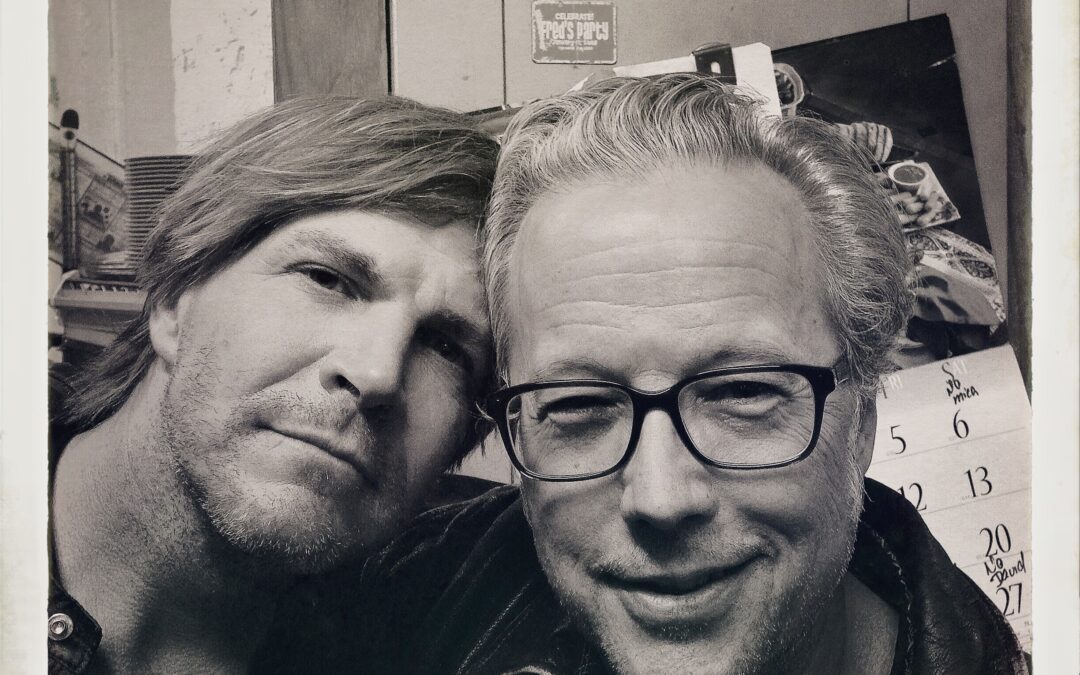
by Darden Smith | Feb 10, 2016 | And here's another thing..
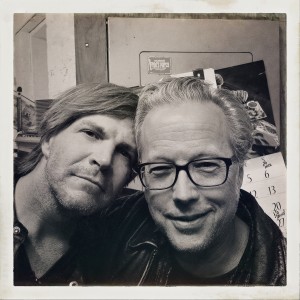
Writing a song with somebody connects you like glue.
You sit in a room and spill your soul, tell each other secrets that you can’t, or won’t, confess in any other setting.
You find the poetry that hangs around the edges of a life,
Sing about the beauty, the darkness, what’s lost and found.
Together, you put it all into a rhyme, a melody,
Sing it a couple of times, make a recording.
It might be that no one ever hears it, might turn out to be a hit.
Regardless, at the end of the day, you have something that wasn’t there before, something you couldn’t have made without each other.
There’s a connection that comes from doing this.
The song may not last, but that link does.
I’m grateful to have had the chance to write with both of these gents, Radney Foster and Jack Ingram.
The songs are usually pretty good, but the hang is relentlessly fantastic.
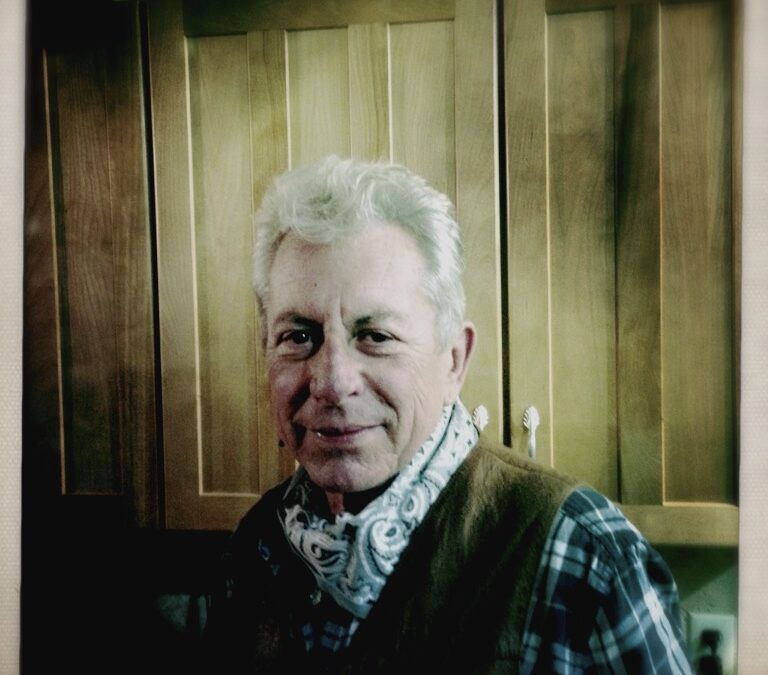
by Darden Smith | Dec 30, 2015 | And here's another thing..

The first time I saw Joe Ely was around 1986, at the Austin Opry House. I remember saying to the person with me, “Well, that’s what Rock and Roll looks like.” It was raw like good church, a show. He was all over the stage. The songs were a crazy mash up of West Texas swing, Mexican rhythms, and flat-out rave. Loud guitars, pedal steel, drums and accordions.
A few years later, at a party at his house near Austin, I sat around a fire and listened to him, and others, sing. His version that night of “Because Of The Wind” stuck in my mind because of his voice — low, soft, full of horizon.
In 1989 I opened for him on a tour of the Netherlands, UK and Ireland. Every night was electric. We would stand backstage and watch Joe give it all. It was something like the power I’d witnessed as a kid hanging out near the chutes at rodeos around Texas.
Joe is that mix of melancholy distance and barely controlled lightning. He has more stories than most libraries (whether they’re all true or not is completely irrelevant), and he’s a master at the telling. His music is equal parts Buddy Holly, Roy Orbison, Woody Guthrie and Mexican folk songs. To me, he’s an American treasure.
I ran into him the other night at a party and he told me a great story that had to do with being stuck in a New York City basement during Hurricane Gloria with Keith Richards and Ron Wood.
You should’ve been there.
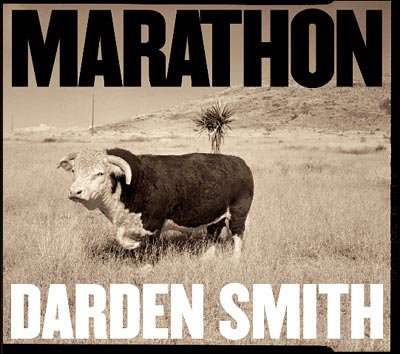
by Darden Smith | Oct 4, 2015 | And here's another thing..
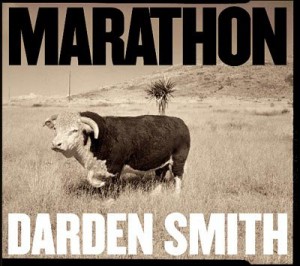
You get used to driving fast in West Texas. There’s no reason not to.
So, when I went through Marathon on my way to Marfa, yes I thought I was going slow. But compared to 90, 60 feels slow.
When the sheriff pulled me over, right in front of the Gage Hotel, looked at my license for a minute, gave me a very polite lecture on speed limits, then asked me what I did for a living, I said, “Oh, I’m a songwriter.”
“You write anything good?”
At that, I reached into the backseat and pulled out a copy of ‘Marathon,’ and handed it to him, saying, “Well, there’s that.”
“Well, I’ll be damned. Really?”
“Yeah, kind of crazy, but I wrote it about this part of the world.”
“Well son, I’m gonna listen to this on the way home, and if it ain’t any good, I’m giving you a ticket next time. OK?”
“Absolutely.”
“Have a great day, and drive safe.”
“Thanks.”
Who says music doesn’t pay…
And, yes, I hauled ass to Marfa.
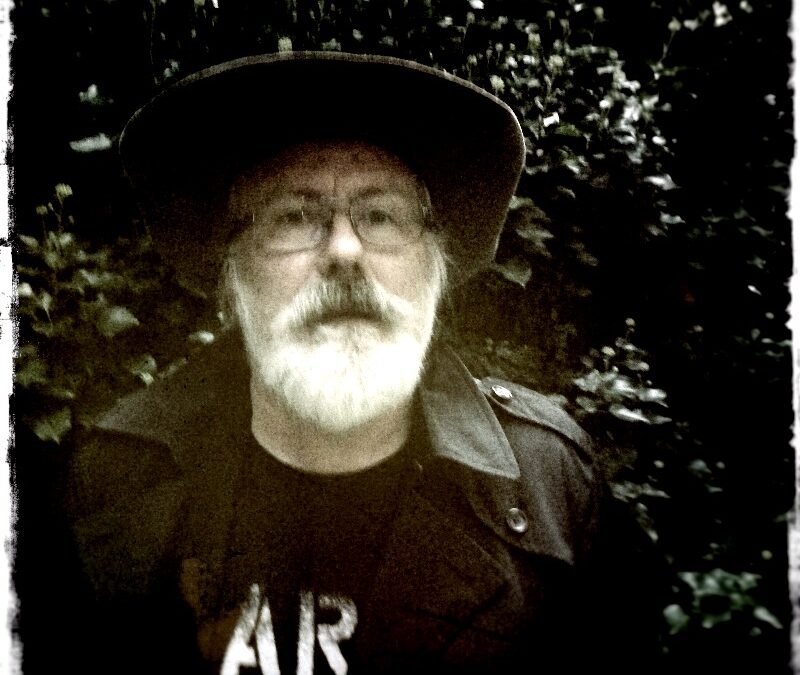
by Darden Smith | Aug 28, 2015 | And here's another thing..
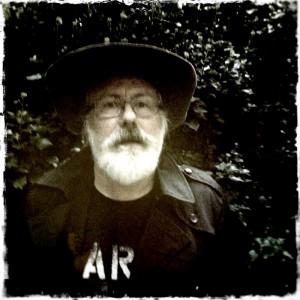
In 1992 I was in NYC to make “Little Victories.” The producer Richard Gottehrer told me that he had this guitar player he wanted to try on a couple of tracks. I showed up at RPM Studios on 12th Street a little before we were supposed to start and there was this guy in the main room, bent over a stack of amps and pedals. He’d been like that for two hours, an assistant said. I’d never heard anyone play so loud.
Knox Chandler. Over the next two days he played some of the most amazing sounds. The first song we did was “Loving Arms.” I remember when we came on the opening guitar hook for that one. It took my head off. “Levee Song,” “Little Victories,” “Levee Song,” “Dreams A Dream,” that’s Knox’s crunch and wail holding it all together.
Knox was one of the coolest and most bizarre guys I’d ever met. I remember walking through the East Village with him around this same time, and asking him what he thought about the tattoos that seemed to be appearing from nowhere. He turned to me and said, “You know, that’s just too weird for me.” I thought about that for a few seconds and said back, “Brother, if it’s too weird for you, it’s way too weird for me!” I’ve never been tempted to get a tattoo since that conversation.
On one of those walks we used to take through lower NYC, he turned to me suddenly and asked, “Feel like a pickle? Let’s go to Gus’ Pickles (I think that’s what it was called).”
He was there when I did the Tonight Show. That’s his guitar all over the “Sunflower” album. Our sons are the same age. I realize now that we’ve known each other for damn near 25 years. When I went to NYC around the end of September 2001, Knox was one of the people I went to see, just to give him a hug and hear his story of living below 14th street during those weeks.
Last night in Berlin, sitting, talking with Knox in my friend Jan’s backyard garden, it took me back to those days in the early 90’s walking through NYC, getting an education that can’t be found in any book.
August 25, 2015
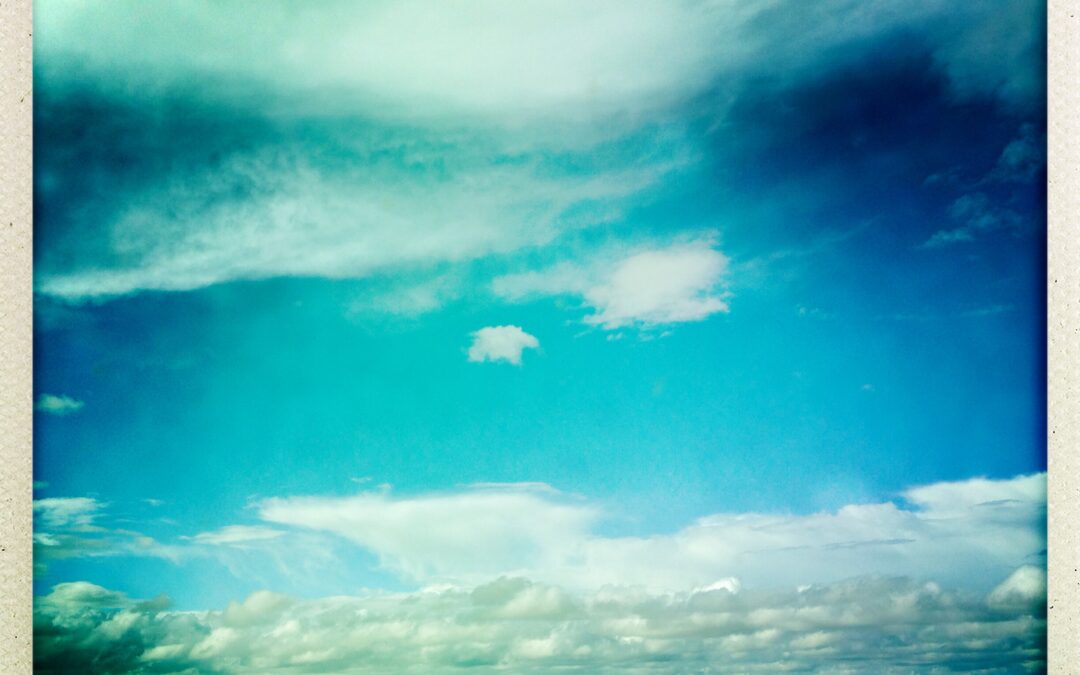
by Darden Smith | Jul 4, 2015 | And here's another thing..
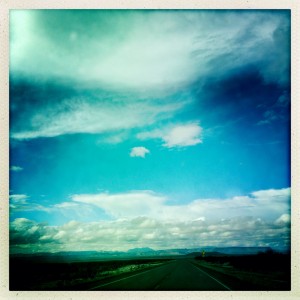
Alex Marrero, the badass drummer / singer / guitar player / voice over artist, gave a great Pecha Kucha talk here in Austin in July 2015. I’m going to do my best to summarize it here for your Independence Day reading (Non-US readers, just go along with us…).
In 1962, Alex’s parents left Cuba because they wanted freedom.
Freedom for themselves, freedom for their children.
They left all that they knew behind so that they and their kids might have the opportunity to make the choice of how and why they spent their days, how their children moved through the world.
Think about that for a moment:
They left everything, and started over, for freedom.
They landed in Virginia, and it was weird.
Became citizens.
A few years later, the family moved again.
Mexico City, where Alex grew up.
They started over, again.
In his twenties, Alex moved to Austin.
To play music.
He’s Cuban, grew up in Mexico, lives in America.
Alex’s says that when he was a kid, his parents made them read the Spanish and English language newspapers. He insisted that they be bilingual. Alex understood what they were doing, but only later did he appreciate that what they were doing was giving him one more chance at freedom — freedom to navigate a bigger world, to be who he is without restriction.
Freedom to choose.
All the dislocation his parents went through,
All they put their kids through,
Was in pursuit of a very simple concept —
The ability to have some say over the way you live your life.
Alex told us that because his parents had the guts to leave everything behind, he now has the freedom to play music (which is a bit of a ball and chain in itself, but let’s don’t go there).
If you’re in the US, you have certain freedom.
It’s not perfect, it may not be all glory and silver linings,
But you do have the ability to make choices.
It’s possible to change direction.
So, on this Independence Day
Think about what the people who came before you, your family,
Your bloodline went through so that you have this luxury.
What did they give up, leave behind, overcome,
So that you can have these freedoms, big and small?
Freedom of choice.
Alex told us his story that night, looked us all in the eye, and asked us, as I’ll ask you now:
What are you choosing to do with your freedom?
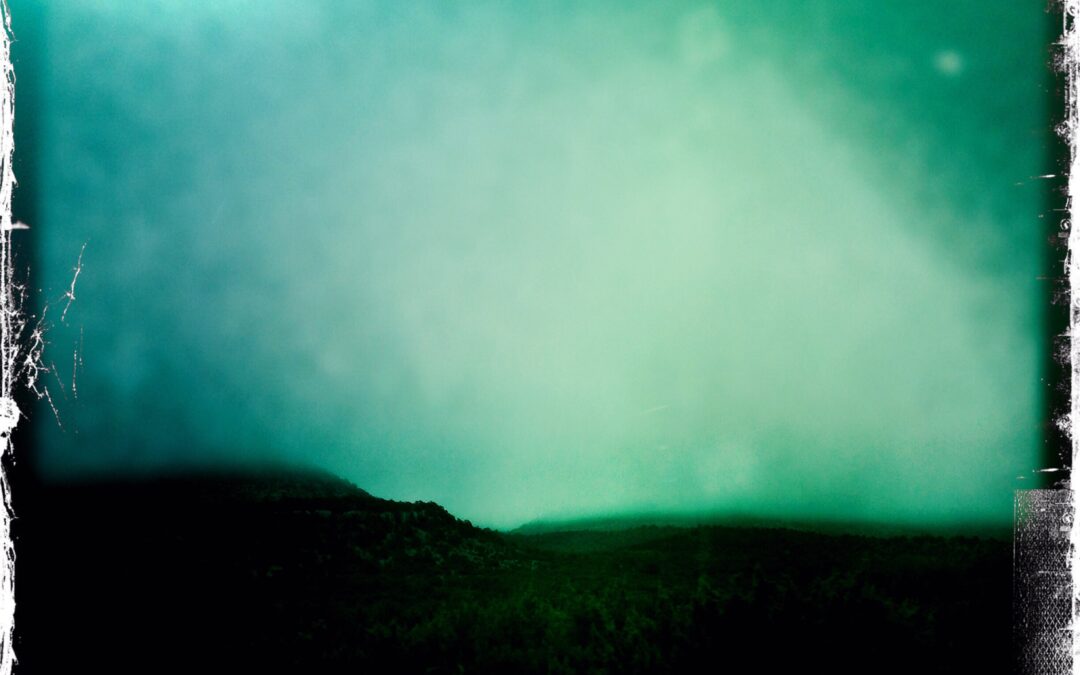
by Darden Smith | Jun 23, 2015 | And here's another thing..
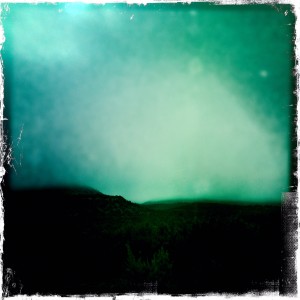
My agent quits on Monday.
On Wednesday I tell my wife that I’m filing for divorce.
That afternoon my manager Ron calls and tells me that my record deal is history.
It’s been a big couple of days.
I’ve been building up to it, these 72 hours in 1995.
And this triple slap brings on a five-year whirlpool.
I hit the ground again and again. Hard. It hurts. I break all the way down.
And I question everything — money, responsibilities, music.
I wonder how to make all these seeming opposites work together,
Travel so hard for so little cash, and so little time home,
Put myself, my songs, out there over and over
For people to love, slam, or worse, just fucking ignore.
When my brain is at it’s darkest,
I see a hundred reasons for quitting music,
To stop making everyone put up with the fallout from my dream.
But I come to the simple fact that nothing fills me
Like putting words on a melody, telling a story that I’ve pulled from thin air.
The success or no-success of it is completely disconnected from the work itself.
And this is why I do it, what makes it worth the fight.
I fell in love with the work, not the feedback.
And I’ve never looked back.
Now the challenge is how to make daily life fit in with music,
Not the other way around.
Music is the constant.
It’s what fills the cup.
Everything else is just extra goodness.
It was my time to hit the wall, 1995,
To come up against myself,
Who I thought I was,
To find the reason to keep moving, stronger,
More exact in my dream.
The value of a good breakdown can never be underestimated.
As an artist, if you never confront yourself,
Your work is going to be stuck in the beginning phase.
Grow up. Crack up. Rebuild.
Tell the truth.
Make art.
© 2015 Darden Smith












